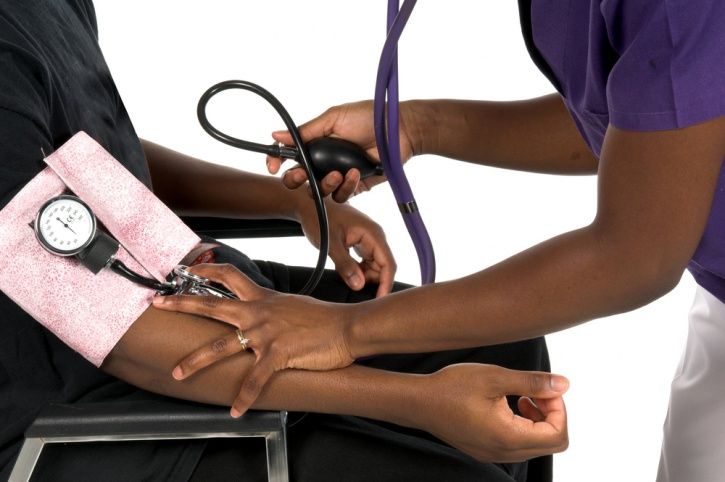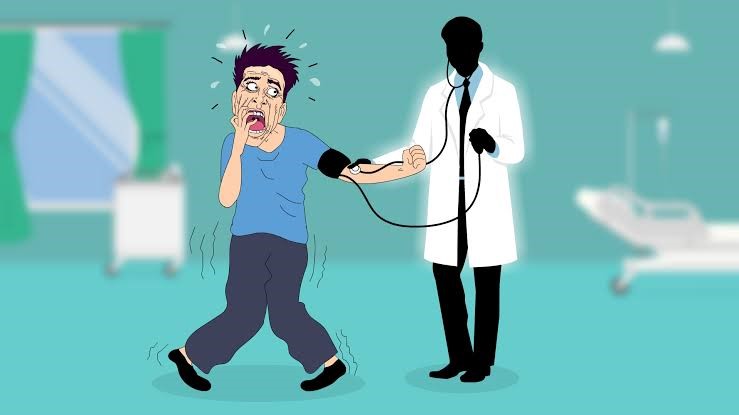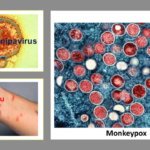Sarah, a 45-year-old mother of two in Lagos, Nigeria, never imagined that a routine visit to her doctor would reveal a silent threat lurking within her body. It was on World Hypertension Day, observed on 17th May that Sarah received the shocking news that she had been diagnosed with hypertension. This diagnosis not only sent shockwaves through her own life but also shed light on the growing burden of hypertension cases in Nigeria, especially among those ignorant that they have this silent killer until it suddenly strikes.
Over the past few years, Nigeria has seen a significant increase in reported cases of hypertension, with statistics showing a steady rise from 2020 to 2022. According to data from Nigeria’s Federal Ministry of Health, the number of hypertension cases reported in health facilities across the country has increased by 15% each year, highlighting the urgent need for awareness and preventive measures.
Join our WhatsApp ChannelOn World Hypertension Day, health organisations, government agencies, and community groups in Nigeria and all over the world come together to raise awareness about the importance of early detection, lifestyle modifications, and regular monitoring of blood pressure. Free health screenings, educational campaigns, and interactive workshops are organized to empower individuals like Sarah to take control of their health and make informed choices.
As Sarah embarks on her journey to manage her hypertension through medication, diet, and stress-reducing techniques, she is determined to prioritise her well-being and inspire others to do the same. World Hypertension Day serves as a reminder for Nigerians to prioritise their health, seek regular check-ups, and adopt healthy lifestyle habits to prevent this silent killer (hypertension) from taking its toll on their lives.
READ ALSO: How Social Media Poses Threat To Mental Health
In Nigeria, the burden of hypertension has been steadily increasing over the past few years, with a notable rise in reported cases from 2020 to 2022. Hypertension, also known as high blood pressure, is a chronic medical condition that affects millions of individuals worldwide and is a leading risk factor for heart disease, stroke, and other cardiovascular complications. According to the World Health Organization (WHO), hypertension is responsible for an estimated 10.4 million deaths globally each year.
Workplace-related Stress
Workplace-related stress has emerged as a significant contributing factor to the rising prevalence of hypertension in Nigeria. As the country’s economy continues to grow, the demands of the modern work environment have intensified, placing immense pressure on employees to meet deadlines, achieve targets, and navigate complex organisational structures. Long hours, job insecurity, and a lack of work-life balance have become common stressors for many working professionals, leading to an increased risk of developing hypertension and other stress-related health issues.

A study conducted by the Nigerian Institute for Medical Research (NIMR), revealed that work-related stress is a key driver of hypertension among Nigerian workers, particularly in high-pressure industries such as finance, healthcare, and information technology. One of the contributing factors to the rising prevalence of hypertension in Nigeria is workplace-related stress. As the demands of the modern work environment continue to increase, many Nigerians find themselves grappling with high levels of stress, leading to hypertension and other related health issues. Long hours, tight deadlines, and a lack of work-life balance have taken a toll on the physical and mental well-being of many working professionals. The study found that employees who reported high levels of job strain and job insecurity were more likely to have elevated blood pressure levels, highlighting the detrimental impact of workplace stress on cardiovascular health.
In addition to workplace-related stress, students in Nigeria are also facing mounting pressures that can contribute to the development of hypertension.
Similarly, students in Nigeria are not immune to the pressures of academic life, which can also contribute to the development of hypertension. The pressure to excel in exams, meet academic expectations, and juggle multiple responsibilities can create a high-stress environment for students, increasing their risk of developing hypertension at a young age.
The Nigerian educational system is known for its rigorous academic standards, competitive examinations, and demanding coursework, placing a heavy burden on students to excel academically. The pressure to perform well in exams, secure admission to prestigious universities, and meet societal expectations can create a high-stress environment for students, increasing their vulnerability to hypertension at a young age.
According to a survey conducted by the Nigerian Medical Association (NMA), the prevalence of hypertension among Nigerian students has been on the rise, with an increasing number of young individuals being diagnosed with high blood pressure. Factors such as academic stress, peer pressure, and lifestyle choices have been identified as key contributors to the growing incidence of hypertension among students in Nigeria.
World Hypertension Day, observed annually on 17th May, serves as a global platform to raise awareness about the importance of preventing and managing hypertension. In Nigeria, World Hypertension Day is marked by a series of health promotion activities, including free blood pressure screenings, educational seminars, and community outreach programs aimed at increasing public awareness of hypertension and its risk factors.

Health organisations, government agencies, and non-profit organisations in Nigeria collaborate to organise events and campaigns that emphasise the significance of early detection, lifestyle modifications, and regular monitoring of blood pressure. These initiatives are designed to empower individuals to take proactive steps toward managing their hypertension, making informed health choices, and reducing their risk of cardiovascular complications.
As individuals like Sarah, a 45-year-old mother of two from Lagos, Nigeria, receive their hypertension diagnosis on World Hypertension Day, they are encouraged to embark on a journey of self-care, disease management, and health education. Sarah’s story resonates with many Nigerians who are grappling with the challenges of hypertension, emphasising the need for timely intervention, medical treatment, and lifestyle changes to mitigate the impact of this silent killer.
The long-term implications of hypertension on public health in Nigeria cannot be understated, as the condition poses a significant economic and social burden on individuals, families, and healthcare systems. Addressing the root causes of hypertension, including workplace-related stress and student-related stress, requires a multi-faceted approach that encompasses policy interventions, public health campaigns, and individual behaviour change initiatives.
There is a need for increased awareness about hypertension in Nigeria to shed light on the growing epidemic of this health challenge, risk factors, and empower individuals to take control of their cardiovascular health. By fostering a culture of prevention, early detection, and holistic care, Nigeria can work towards reducing the prevalence of hypertension, improving the quality of life for its citizens, and building a healthier future for generations to come.















